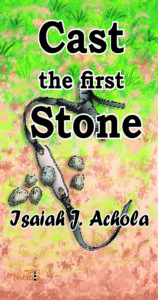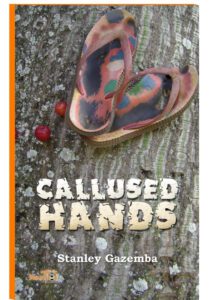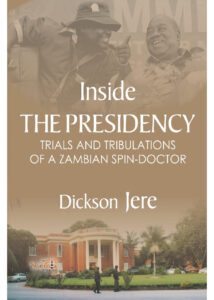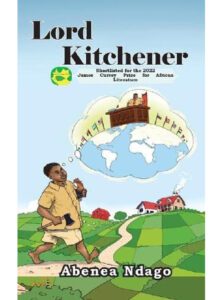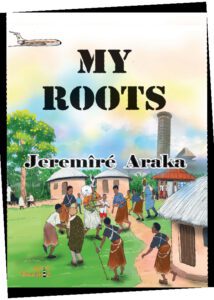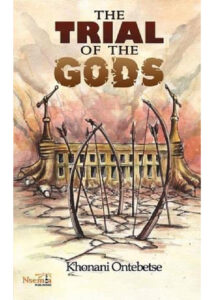
- Publisher: Nsemia Inc. Publishers, Ontario, Canada
- Reviewed on: October 1, 2021
UNDETERRED: A RURAL BOY’S JOURNEY TO THE PINNACLE OF ACADEMIA by John Sorana Akama with Joshua Araka
Reviewed by: George Obara Nyandoro
Written in uncharacteristic candour and rich in polyphony, Undeterred is a tour de force of competing voices in multiple cultural and historical situations and multiple socio-political settings. Running 433 pages, the narrative pleasurably, in a readable and controlled manner, unfolds before the reader’s eyes the making of one of Kenya’s illustrious scholars in a long, winding, treacherous but epical journey.
John Sorana Akama the author/ narrator (in collaboration with Joshua Araka) recollects the autobiographical self in retrospective introspection. He meticulously takes the reader through a remarkable tour of his growth and evolution from his humble beginnings in his Mecheo village in the current Nyamira county, in the wider Gusii Region of South Western Kenya, through his academic sojourn in the USA, back to the stimulating intrigues which characterize the Kenyan and African academy in general, which, nevertheless, he can manoeuvre to achieve high-level academic accolades and a brilliant professional growth, culminating in the management of Kisii University from its nascent and humble beginnings as a constituent college of Egerton university through its promising growth into one of Kenya’s prime institutions of higher learning with a distinct and bright future.
While the narrating character organizes himself as transient and evolving in time and space, particularly in how he transforms from an ordinary boy in his rural village to a global cosmopolitan involved in transcultural conversations, he retains a strong moral conviction regarding the significance of his cultural past.
In a beautiful revelation of the autobiographical intention, the narrator realizes narrative integrity and credibility by cleverly repossessing the historicity of the self, and essentializing his sense of societal truth through an objective rendition of his existential reality over time and spatial perspectives. The narrator’s personal and cultural history is nuanced with multi-vocalism and a unique ethnographical milieu. The progenitor of his patriarchal family tree is a Maasai boy who is retrieved as a spoil of war during the fierce Ngarora war in which the Siria Clan of the Maasai attacked the Gusii at the present Transmara Sub-county in Narok County.
Left-handed like the narrator, Mokoro, for that is how this child of Maasai origin would be named, would inculcate the pulsation of the warrior bloodline in the descendants of the family tree. He is famed, for instance, for using his left-handed position to wrong-foot Luo adversaries in defence of the Kitutu clan of the Gusii which finally adopted him.
Mokoro’s great-grandchild, Otwori, the narrator’s grandfather, would later replicate this feat in the Saosao war of 1882 as a lead warrior and in the Abagusii resistance of the British Colonial rule of 1911. The adventures of Otwori would also include the strangling of a foreman during the construction of the Nakuru-Kericho road to which he had forcibly been conscripted by the colonial administrators.
He would continue his anti-establishment campaigns in another forcible conscription during the construction of the Mai Mahiu-Narok road and would have probably met his death in third conscription during the First World War if his elder brother, Obabi, had not offered to be conscripted on his behalf ending up in death.
In retrospection, the narrator retrieves these warrior credentials to buttress his heroic struggles against adversity at every turn of his own life. These warrior credentials essential as they are in the trajectory of the patriarchal family history oscillate as centripetal forces disrupted by matriarchal centrifugal forces which help balance the masculine and feminine voices in the narrative in a beautiful rendition of polyphony as a dialogic imperative. The image of matriarchy is foregrounded by the powerful presence of the narrator’s mother in all his undertakings.
The significant presence of his mother in his life is announced by the most essential attribute to the construction of the narrator’s self-identity: his name, Sorona. Coming from a community in which the naming of a child followed the pattern of the patriarchal family tree, in a clear disruption of this practice the narrator is named after his maternal grandfather, himself an extremely skilled mason with several pioneer concrete buildings to his name and an extremely forward-looking entrepreneur of his time who boasts of having been among the first millers in Gusiiland.
While the narrator’s father plays a significant part in his upbringing, it is not lost on the reader that it is the gentle guidance of the mother which would have the narrator’s greatest formation of essential values such as integrity and the fight for social justice and fair play as the foundational principles of his character. It is, therefore, with a significant sense of loss with which the reader confronts the death of the narrator’s mother just when the narrator embarks on scaling the heights of higher education at the University of Nairobi.
The balance between the narrator’s masculine warrior blood and the stabilizing thoughtful introspection of life as taught by his mother pervades the entire narrative as he navigates around the many snares placed upon his path to success. An important aspect of this introspection is the narrator’s belief that any faltering in life invites other opportunities to experiment with alternative handles to success.
For instance, when he gets a scholarship to study in the USA having excelled in his undergraduate studies, close friends and relatives tasked to organize a funds drive to raise his air ticket actively undermine the initiative. Despite this sabotage, he triumphs and proceeds to the USA where he emerges as a top of class student who completes double Masters degrees (in geography and Curriculum & Instruction at Ohio University) using one scholarship and emerging as a distinguished A-student and proceeds to complete his Ph.D. at Southern Illinois University in record time.
After completing his Ph.D., the narrator encounters an extremely bizarre experience while still in the USA. He applies for a relatively well-paying job (and gets it) as a Program Officer at a quasi-governmental organization called the World Wildlife Fund of America (WWF-A) whose headquarters are based in Washington DC. Just like how he had trusted friends and relatives to organize his trip to the USA, the narrator trusts some kinsmen to temporarily host him as he finds his footing.
As it turns out just like the saboteurs of his journey to the USA this trusted family attempts to kill him but he yet again triumphs and travels back to Kenya to begin his journey at the Kenyan academy in the department of Tourism and Hospitality Management at Moi University. These continued twists of snares and triumphs define the entire plot of the narrative and define the resilience of the narrator as he painstakingly journeys through the academic ladder to a full professorship at Moi University.
His strong views on integrity and meritocracy cost him his job as the HoD in the Department of Travel and Tour Operations Management when he declines to recommend for employment undeserving cases to lecturer position and when he also refuses to allow for the misappropriation of university funds. However, despite the loss of his position the narrator embarks on research and publication leading to his rapid ascendance to the position of Associate Professor in a record six years period.
As a scholar, he seems to have developed the view of cultural transcendentalism while retaining a dignified respect for one’s cultural background.
In the narrative, two occasions inform this view. On one occasion while attending an African Studies Association (ASA) conference in Washington DC he is pleasantly surprised to listen to a presentation by Dr. Robert Maxon on risaga (communal work arrangement among the Gusii of Kenya). This experience births a collaborative effort, by the two scholars, leading to the publication of The Ethnography of the Gusii of Western Kenya: A Vanishing Cultural Heritage (2006).
On the flip side, at the same conference, an African scholar based in the diaspora attempts to demean African universities by calling them over-glorified High Schools. The incensed narrator puts up a spirited defence of the African universities despite his unpleasant encounters with ethnic bigotry, nepotism, gluttony and outright incompetency in his days at Moi University. His support for the African academy on this occasion is because as he opines, African scholars should be careful from falling into the trap of the Western stereotyping of African societies.
The narrator also retrieves the debate of the 1990s on the question Brain-drain versus Brain-gain. In balancing the argument, the narrator suggests to African scholars living in the diaspora to heavily borrow from diasporic Asian scholars who significantly engage in the transfer of knowledge and technologies to help their countries.
As Vice-chancellor of Kisii University, the narrator gives the reader a glimpse into the challenges of navigating a nascent university into a center of academic excellence despite the many challenges of underfunding and under-resourcing higher education.
Reading Undeterred is truly a rewarding experience. However, one feels that the story is yet to be completed and a second edition would be most welcome.
Dr. George Obara Nyandoro is a life-writing expert. He teaches literature at Kisii University and is also the University’s Director of the Board of Postgraduate Studies.

